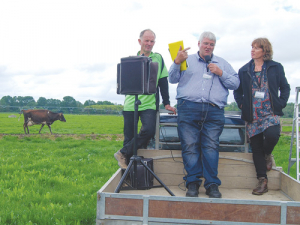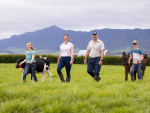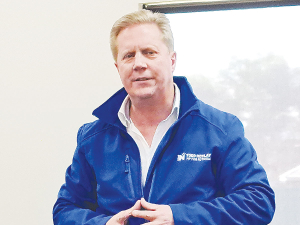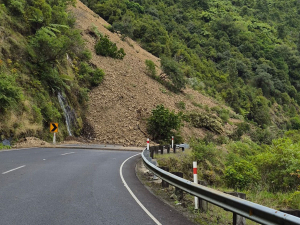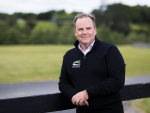The possible future of dairy farming was displayed in Canterbury recently to attendees of the NZ Grassland Association’s 78th annual conference, held this year in Timaru.
On the first day at least 300 farmers, scientists and industry people on a field trip visited two robotic milking farms in the Pleasant Point and Cave areas.
Riverholme Pastures (135ha), run by Alvin and Judith Reid, had been a dairy support and young stock grazing unit but was converted to dairying in 2013 with six DeLaval robotic milkers.
It is divided into three large blocks on an open-gates system, so the cows are free to make their own way to the shed at any time day or night. It is a highly automated system with a series of gates at the shed controlling the animals’ access to the robots, and cameras allowing remote monitoring even at night.
DairyNZ senior scientist Dr Jenny Jago, who led the eight-year ‘greenfield’ project which established the viability of robotic milking under NZ conditions, told the visitors about 20 farms here are milking by robots.
She says robotic milking was originally developed for European indoor cows, so a key challenge for the NZ project was to show that outdoor-grazing cows could make their own way to the sheds when they needed to.
“Farmers know cows are smart. But this is the project that really allowed the cow to show she is able to learn and contribute to the way a farm is run.
“All we do is put incentive and guidance in place for the cow and the rest she does herself.”
The field trip also took in the Moa Flat Dairy near Cave, where Alex Ulrich runs 300 cows under an indoor free-stall voluntary milking system, as well as the Ulrich family’s adjacent Rock Farm, primarily run as a dryland lamb and beef finishing unit and supporting Moa Flat.

